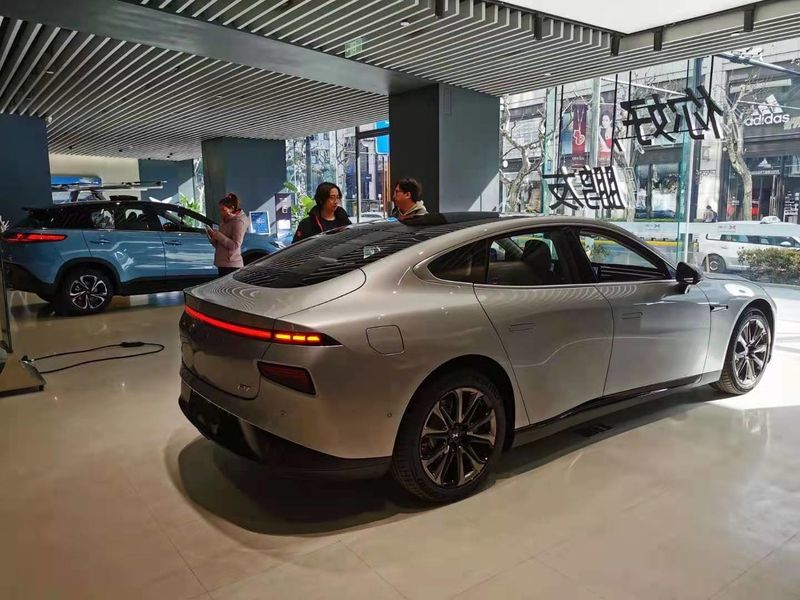
SHANGHAI – More than 60 percent of China’s 14.4 billion residents live in cities. And these days, the country’s sprawling urban areas are becoming more torn between a desire to ease traffic congestion and to promote green vehicles.
Shanghai, the largest Chinese city, has become the first to craft a solution: Phase out incentives for plug-in hybrids and extended-range EVs, and go all out to popularize EVs.
That’s part of the plan the Shanghai municipal government released Thursday on how to develop the local new-energy vehicle marketplace over the next five years.
In Shanghai, a city with 24.2 million people, buyers of EVs and plug-in hybrids have been exempted from paying exorbitant license plate fees, which can exceed 90,000 yuan ($14,000) per vehicle.
Because of the popular incentive policy, Shanghai has become home to the largest electrified vehicle fleet among Chinese cities.
In 2020, sales of EVs and plug-in hybrids in the city topped 121,000, representing about 20 percent of total vehicle sales and quadruple the tally in 2018.
Among 2020 sales of electrified vehicles in Shanghai, 63 percent were EVs and the remaining 27 percent were plug-in hybrids.
But beginning March 1, local residents who already own a traditional vehicle will not be allowed to enjoy the exemption when they buy a plug-in hybrid.
And starting next year, the exemption will be discontinued for purchases of plug-in hybrids and extended-range EVs in the city.
At the same time, the license plate fee exemption will be left untouched for buyers of pure EVs.
In addition, the Shanghai government is requiring local agencies, state-owned enterprises, public transport operators, taxi companies and utilities to purchase more EVs.
By 2025, the city government expects EVs to account for more than half of new vehicles purchased annually. It will also require local taxi companies to replace their entire fleets with EVs by that year.
After the coronavirus outbreak ravaged China last year, the central Chinese government decided in April to extend subsidies for electrified vehicles to 2022.
Full-electric passenger vehicles now qualify for subsidies of up to 25,000 yuan and plug-in hybrid cars are eligible for a flat subsidy of 10,000 yuan.
To shore up demand for electrified vehicles in the wake of the outbreak, the central government in Beijing has also allowed cities to roll out their own incentives for such vehicles.
And most large and medium-size cities in China now face growing traffic congestion, pollution and tighter budgets.
Shanghai’s latest approach to spur electrified vehicle adoption, curb pollution and ease congestion may well serve as an example for other cities.